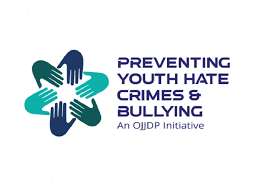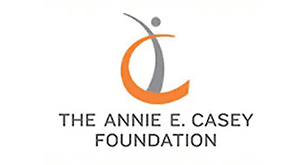Homepage
Attorneys
 “Unto the Third Generation” Revisited: The Impact of a National Plan to End Child Abuse in The United States within Three Generations
“Unto the Third Generation” Revisited: The Impact of a National Plan to End Child Abuse in The United States within Three Generations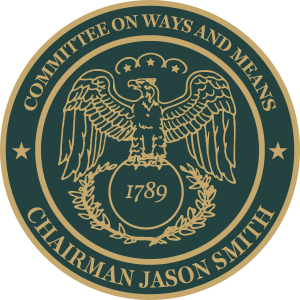 What They Are Saying: Child Welfare Reauthorization Delivers First-In-A-Generation Wins for Parents and Families
What They Are Saying: Child Welfare Reauthorization Delivers First-In-A-Generation Wins for Parents and Families Guide for Providers: No-Cost Training Resources on Kinship/Grandfamily Mental Health Needs
Guide for Providers: No-Cost Training Resources on Kinship/Grandfamily Mental Health Needs

Recent Updates from Louisiana Supreme Court:
- Resolution 606 addresses anti-black racism and its impact on families in child welfare.
- Court Improvement Program’s CIP Cafe’ offers free, monthly educational opportunities for child welfare practitioners.
- Child in Need of Care Trial Skills Building Training for Louisiana Attorneys – Next Session is September 16, 2024 in Alexandria. Sign Up Now!
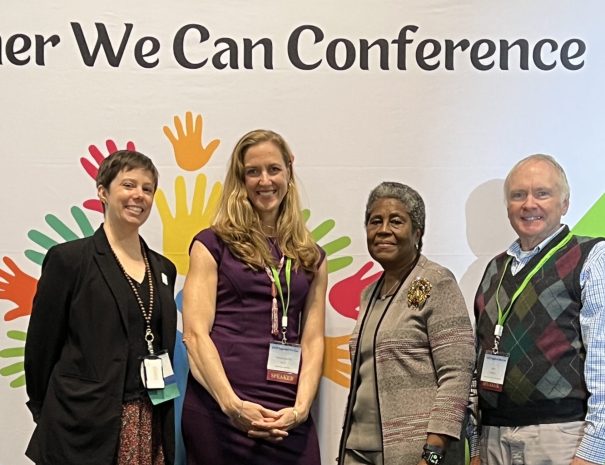
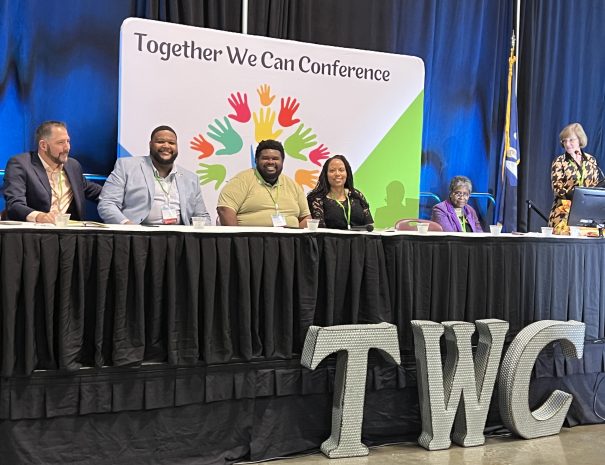
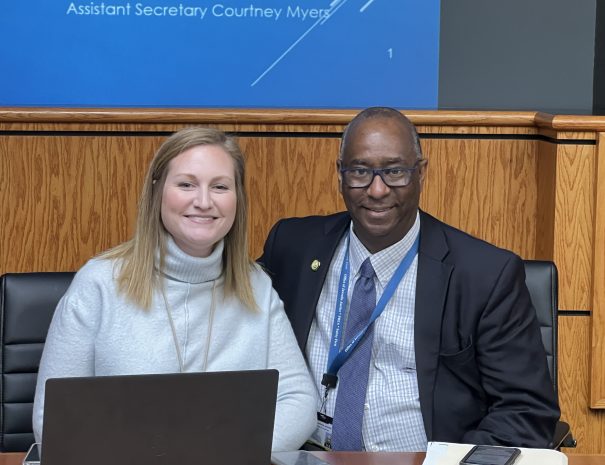
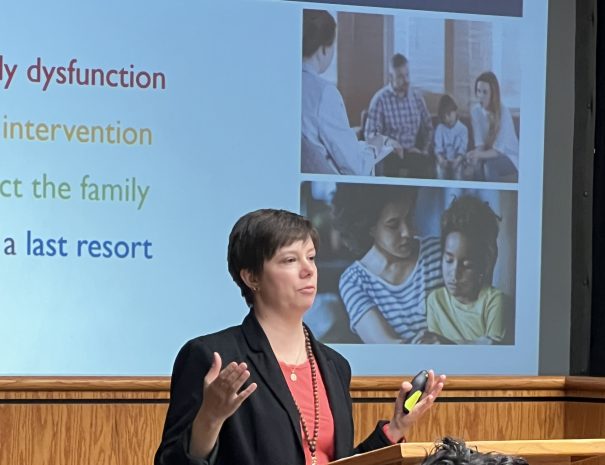
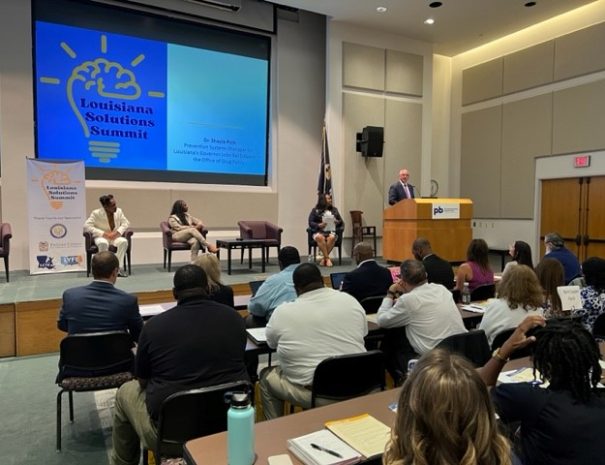

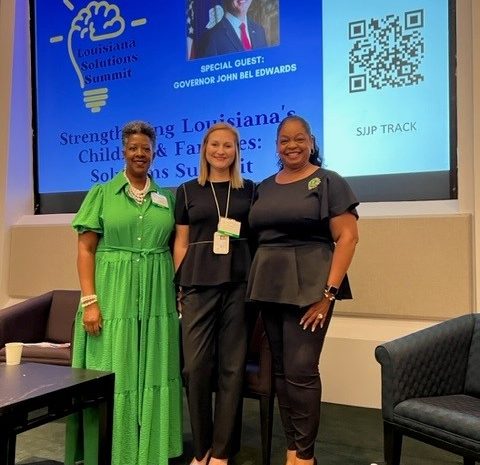
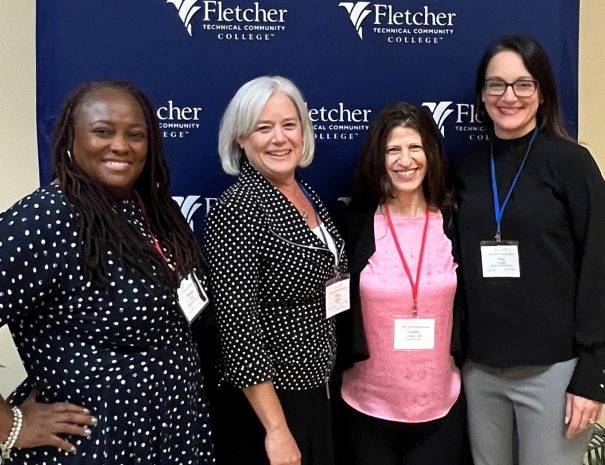
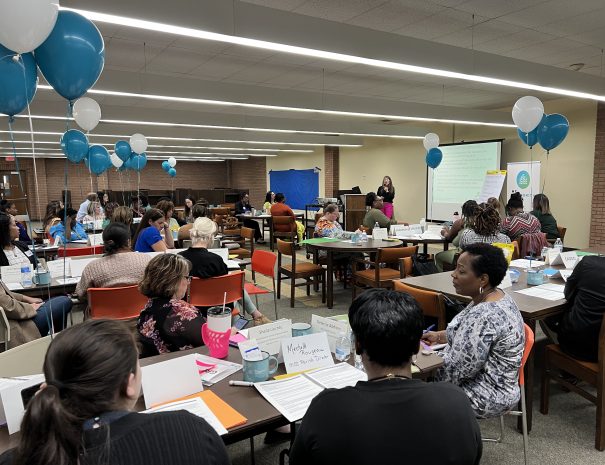
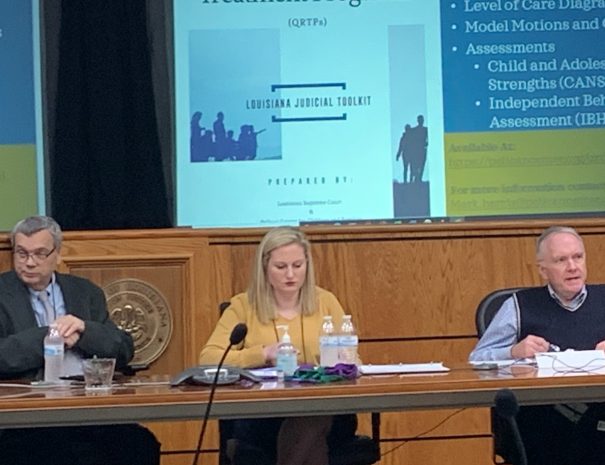
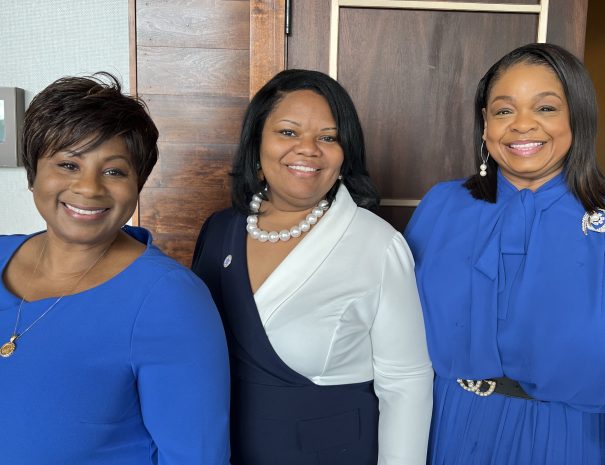
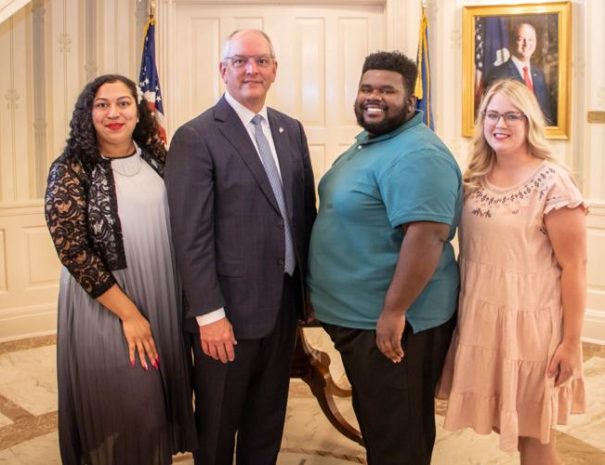
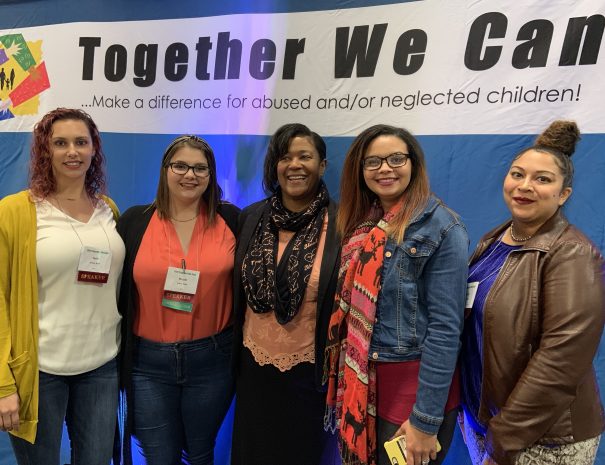
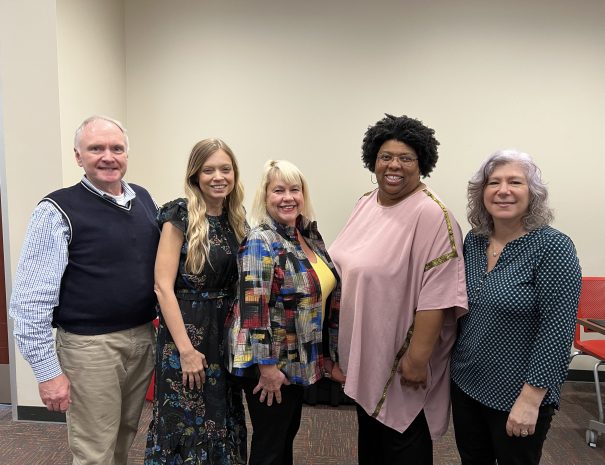
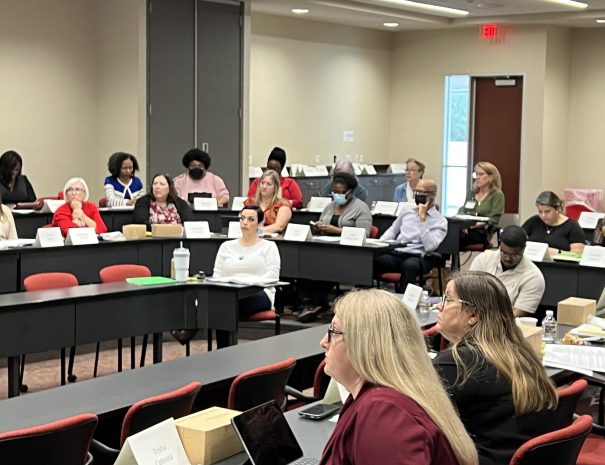
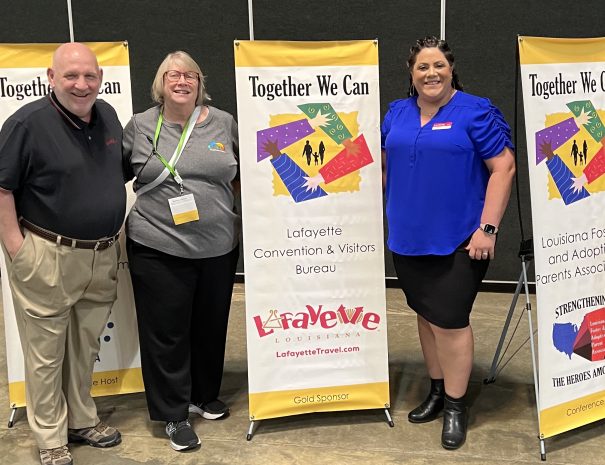
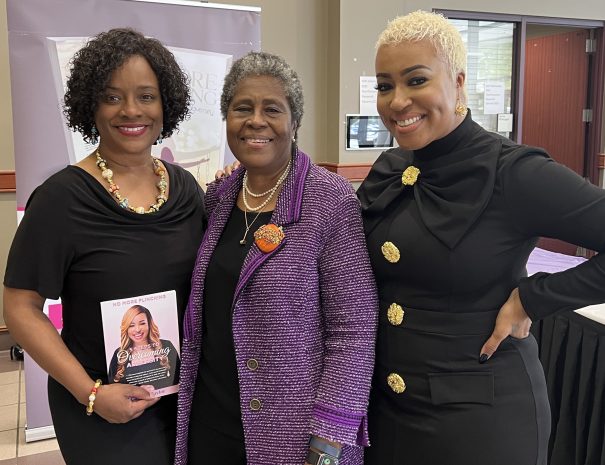
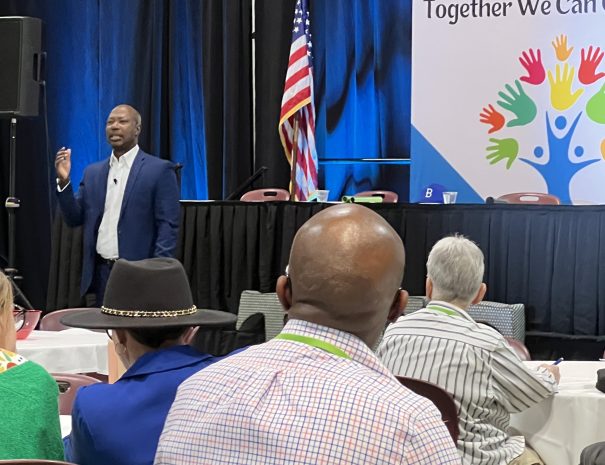
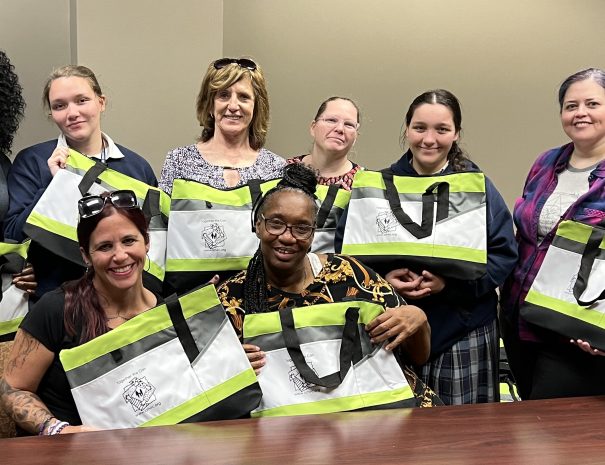
Important Information
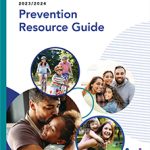 Child Abuse Prevention – Outreach Toolkit 2024 - National Child Abuse Prevention Month: April 2024 Whether by proclamation, through social media, with graphics, or through other means, spreading the word about child abuse prevention lets your community know they can take action to strengthen families and help them … Read More
Child Abuse Prevention – Outreach Toolkit 2024 - National Child Abuse Prevention Month: April 2024 Whether by proclamation, through social media, with graphics, or through other means, spreading the word about child abuse prevention lets your community know they can take action to strengthen families and help them … Read More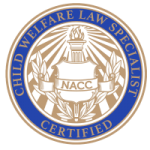 Child Welfare Law Specialist Certification - Child Welfare Law Specialist (CWLS) certification is a professional achievement that signifies an attorney’s specialized knowledge, skill, and verified expertise in the field of child welfare law. The specialization area is defined as “the practice of law representing children, parents … Read More
Child Welfare Law Specialist Certification - Child Welfare Law Specialist (CWLS) certification is a professional achievement that signifies an attorney’s specialized knowledge, skill, and verified expertise in the field of child welfare law. The specialization area is defined as “the practice of law representing children, parents … Read More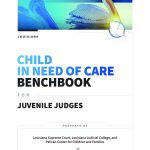 Louisiana CINC Benchbook - The Court Improvement Program of the Louisiana Supreme Court, Louisiana Judicial College, and Pelican Center for Children and Families is delighted to announce the publication of the Louisiana Child in Need of Care Benchbook for Juvenile Judges. The Benchbook project is a … Read More
Louisiana CINC Benchbook - The Court Improvement Program of the Louisiana Supreme Court, Louisiana Judicial College, and Pelican Center for Children and Families is delighted to announce the publication of the Louisiana Child in Need of Care Benchbook for Juvenile Judges. The Benchbook project is a … Read More
Upcoming Events
- Tags ABA Abuse Academy accommodations ACEs Act 378 Activist ADA ADHD Adolescents Adoption adoptive parents adult educators Adults with Disabilities Adverse Adverse Childhood Experiences Advocacy Advocate advocay Affirming Placements African American Youth Agenda for Children Algorithms allied fields Alternative Residential Placements AMCHP american bar association American Indian Americans with Disabilities Act and mental illness Annie E Casey Foundation Anti-discrimination Antiracism Anxiety Anxiety Disorders APHA APSAC ARP Art Art Therapy ASD Assessment Assessment Tools At-Risk At-risk Youth Attachment Theory Attorney Attorneys Autism Awareness Back to School Barriers Baton Rouge Behavior Health Bench Cards Benchbook Best Practices Beth Tyson Trauma BGC Attorneys Bias Birth Parents Black Children Black Families Black Male Black Maternal Health Week Boundary brain development Buddy Books Bullying Bureau of Family Health CAC Calming CAN CAPTA Care for Children caregiver Caregivers CASA Case Coordination case plan CCIP CEU Challenging Behavior chidlren Child Child Abuse child abuse and neglect child abuse prevention Child and Families Child Behavior Child Development Child Education Child Exploitation Child in Need of Care Child Maltreatment child neglect Child protective services Child Safety Child Sex Abuse Child Sex Trafficking Child Sexual Abuse Child Sexual Abuse Prevention Child Trend Child Trends Child Victims Child Welfare Child Welfare Assessment and Decision Making Model Child Welfare Court Child Welfare Information Gateway Child Welfare Law Child Welfare Law Specialist Child Welfare Policy Child Welfare Virtual Expo 2024 child welfare workers Child Well-Being Child Wellbeing childhood Development Children children development children with disabilities Children's Advocacy Children's Advocacy Center Children's Attorney Children's Attorneys Children's Cabinet Children's Code Children's Justice Act Children's Law Children's Rights children's trust fund Children’s Bureau Children’s Justice Task Force childs rights CINC CINC Trial Skills CIP CIP Cafe city leaders Classroom classrooms CLE clinicians CMWS CNLI Co-Parenting Coalition for Juvenile Justice Coffee and Conversation Collaboration Communication communication Disorders Communication Skills Communities Community Community Outreach Compassion Complex Challenges complex trauma Conference Confidentiality Conflict Resolution Congregate Care Connecting Principles Continuum of Care Coordinating Council on Juvenile and Delinquency Prevention Copping Skills Court Court Appointed Special Advocates Court Improvement Program Court Staff Courthouse Security Courts Covid 19 Critical Thinking Crossover Youth CSAM Cultural Competencies Culture CWADM CWLA CWLS CWVE Cybercrime Data DCFS deaf Decency Delinquency delivery Department of Education Department of Justice Depression development and behaviors Developmental Disabilities Difficult People Digital Dialogue Disabilities Disability Rights Louisiana Disabled Parents Disaster Preparedness Disorders Disparate Outcomes Disproportionality Disproportionality and Poverty Dispute Resolution District Attorneys Diversity Domestic Abuse Drug abuse Drug Courts Drug use Drugs Dyslexia Early Childhood Early Chilldhood Early Intervention EarlySteps Eating Disorders Eating Healthy ECE Economic Supports Education Education Program Educators Employment Empowering Engagement Equality Equity ESY Ethics Ethnicity Every Student Succeeds Acts Evidence Evidence Corroboration Exploitation Extended Foster Care Extended School Year Services Faith-based faith-based leaders Families Families helping families Family Family & Youth family center Family Consiltants Family Court Family Dynamics Family Focus Family Health family law Family Preservation Family support Family Treatment Court Family Unification Month family violence Family Visitation family well being FASD Fatherhood Fathers FEMA Fetal Alchohol Spectrum Disorder Fetal Alcohol Spectrum Disorders FFTA FHF Financial Stability FINS FNF Forensic Interviewing Foster Care foster child Foster Children Foster Parent Foster Parent Classroom Foster Parents Foster Youth FPT FPTM FTC FTM Fundraisers Gangs Gender Expansive Youth general education classroom generatins Generation United Generations United Georgetown University Law Center Girls Girls of Color' Grandfamilies Grandparent grandparents Grandparents Raising Grandchildren Grantees grants Grief Guardianship Gun Violence HCBS he Community Outreach Specialist Health health care Healthy Behaviors High School Historical Racism Historical Trauma Homelessness Housing Stability Human Resources Human Trafficking IAP ICAC Task Force ICWA IDEA IEP IEP meeting Immigration Implicit Bias Incarcerated Parents Incarceration Incarerated Parents Inclusion Inclusive Indian Child Welfare Act Indigenous People Indigent Defenders Individualized Education Plan Individuals with Disabilities Education Act Inequality infants Infants and Toddlers Innocent Justice Foundation Intellectual Disability Intentional Integration Intergenerational Internet Crime Internet Crimes Internet Crimes Against Children Internet Safety Intervention Interviewing Investigation Jail Jobs Judge Judges Judicial Justice and Joy national Collaborative Juvenile Court Juvenile Justice Juvenile Justice and Delinquency Prevention Act Juvenile Law Juvenile Sex Trafficking Kinship Kinship Care Kinship Caregiver Kinship Navigator LaCAN LADBP Language Disorders Latoya Butler Law law enforcement lawyer LCTF LCTF Caucus for Children LCTF Caucus for Children - Statewide Meetings LCWTA leaders leadership Learning Learning in Higher Education Legal Legal Advocacy Legislative Update LGBTQ LGBTQIA+ Loneliness Loss of Parent or Caregiver Louisiana Louisiana Children's Trust Fund Louisiana Department of Education Louisiana Department of Health Low Income LRS LSU LWCTA Maltreatment Mandated Reporter Responsibilities Marginalized Youth MDT Medicaid medical Medication medice Meetings Mental Health Mental Health Alliance Mental Heath Mental Wellness Mentor Mentoring Mentoring Programs Mentors MicroAggressions Mindspring Minorities Missing Children Moodle Motions Multi-Disciplinary Team Multidisciplinary Teams Music My Life My Chioce NAA NACC National National Center on Substance Abuse and Child Welfare National Child Welfare Workforce Institute National Criminal Justice Training Center; Fox Valley Technical College; Office of Juvenile Justice and Delinquency Prevention (OJJDP) National Family Treatment Court Program National Federation of Families National Gang Center National IV-E Roundtable National Tribal Native American NCCAN NCFA NCJFCJ NCJTC NCSACW NCSMH NDAA Neglect Networking Neurodiversity NFF NICWA Non-Profit nonprofit and civic organizations Nonprofits NTTAC Nurses nursing law nxiety Disorders OAYI OCD OCDD Office of Juvenile Justice and Delinquency Prevention Office of Juvenile Justice and Delinquency Prevention (OJJDP) OJJDP Online Networking OPD opioid Oppositional Defiant Disorder Oppression Order of the Court ORPC Outcomes OVC Overmedication Pandemic Parent Attorneys Parent Child Interaction Therapy Parent Child Interaction Therapy (PCIT) parental substance abuse Parenting Parenting Education parenting educators Parents Peer Support People with Disabilities Perinatal Mental Health Permanence Permanency Permanency & Well-Being Permanency and Well-Being personal growth Personality Disorders philanthropy Physical abuse physical disability Planning Planning Tools PMH POC Policy pornography Law enforcement Positive Behavior Management Positive Relationships Positive youth development Post Covid Poverty Practice Practice Academy Prenatal Substance Exposure Prevention Prison Privacy Professionals Promising Futures Prosecution Prosecutors Protective Factors Psychiatric Medication PTSD Public Defenders Punishment Putting People First QPI Quality Improvement Race Racial Racial Disparity Racism RAISE Raise the Age RAPT Rasicm Reasonable Efforts Recovery Regulating Complex Emotions Relationships Research Resilience Resiliency Resources Rights Risk Risk Assessment RTA Runaway Rural Safety Safety and Well-Being Safety Kinship safety plan Samhsa's Gains School School Based Schools Secondary Traumatic Stress Section 504 self-advocacy Self-care Self-Esteem Sex Trafficking Sextortion Sexual Abuse sexual violence Social Justice Social Skills social work Social Worker Social Workers SOE Southwest LA Southwest Louisiana SPAN Speaker Series Special Education Special Needs Stakeholder Stigma Stop Bullying Strategies strategy Strengthening Families Stress Student students Students with Disabilities Substance Abuse Substance Abuse Disorder Substance Abuse Exposed Infants Substance Misuse substance use disorder SUDs Suicide Suicide Pevention Supplemental Poverty Measure Support Support Group surveillance Systemic Racism Task Force TBRI Teacher Union Teachers Team Dynamics technique Technology Teen Dating Teenage Parents Teens Testing The Opioid Affected Youth Initiative the Rehabilitation Act therapy Tiered Waiver Title IV-E tools Trafficking trainer Trainig Training Transgender Transition Transitioning Transracial Children Trauma Trauma Center Trauma Focused Cognitive trauma history Trauma-Informed Trauma-informed Practice Trauma-Responsive traumatic experiences Traumatic Stress Traumatized Children Trial Skills Tribal Trust-Based Relational Intervention U.S. Department of Justice U.S. Office of Justice Unaccompanied Unemployment Unsafe UST Victims Victims of Technology-Facilitated Crimes Violence Violence Against Children Violence prevention Virtual Voting Rights Waivers Webinar Welcome2Reality Well Being Weninar Women Women United of Southeast Louisiana Worker Recognition Workforce Development workplace development Workshop YJAM Young Adult Young Child Youth Youth Health Youth Justice Youth Protective Factors

This six-hour training on the topic of Intrafamilial Child Sexual Abuse is being offered in three parts and will take place on Tuesday, October 15, 22 and 29 from 1:00 pm to 3:00 pm Eastern. This training series is targeted for staff working in child welfare related agencies and anyone working with children and their families where there has been no formal disclosure, but sexual abuse is suspected.
In most cases, there will not be a formal disclosure that warrants the involvement of law enforcement or child protective services. The hope is that each one of us can contribute in their own way to support children to access help when they are ready, and that no opportunity is missed through lack of knowledge, skills, or tools to interact with a child that is demonstrating signs of abuse.
This training series will have a special focus on father-child intrafamilial child sexual abuse which will include fathers, stepfathers, and male partners. The intent of these interactive sessions is to build capacity for primary, secondary, and tertiary prevention, identification, and intervention with families.
The facilitators hope to impress on the participants the scope of this issue and the long-lasting impact of trauma on children that experience this type of abuse. Special attention will be directed to building practice wisdom and understanding of psychosomatic symptoms, concepts such as complex trauma and the overlap with other clinical presentations.
Participants may grapple with the great responsibility of decision making in these cases. Verification of concerns can be the first step to intervention or if made in error cause unneeded separation within families.
This training will also focus on interconnected themes and demonstrate connections to enhance practice and client engagement. The topics covered will include the role of the practitioner, application of theory, research, and practice philosophies, to support practice. Assessment tools will be provided which may support practitioners to gather and assess data.
The assessments process will include information gathering, understanding the context in which abuse occurs and the many powerful barriers that function to prevent detection. Topics such as pre-abuse functioning, family functioning and presentations, symptomology-victimology link, and the importance of strategy for engagement with children will also be discussed.
Inquiry into the dynamics of intrafamilial child sexual abuse enables inquiry into the beliefs, actions, and behaviors of children, offenders and in many cases the parent(s) who did not offend. The facilitators will also touch on strategies for engagement with each party for the triangulation of data. A holistic, non-accusatory inquiry strategy supports engagement and the collection of valuable information for assessment and ways of working with the family.
Facilitators:
Dr. Delphine Collin-Vezina, a trained psychologist and full professor at McGill University in Quebec, Canada. She is also an expert in child sexual abuse and trauma and has over twenty-five years of experience.
Gerald Walsh, MSW, RSW, a front-line child welfare investigator with Child and Family Services of Grand Erie, Ontario, Canada. He is a presenter of investigative techniques and has been involved with the training of social work students, child welfare staff, and law enforcement.
Special acknowledgement is also given to the valuable contributions of Andrew Koster, MSW, RSW and co-author of the recent book titled Child Sexual Abuse Investigations and Assessments published by CWLA.

What is race? What is racism? How do these concepts influence people’s perceptions of themselves and others? How has racism impacted the implementation of policies and procedures across our socio-economic systems?
This three-part training session explores these and other questions to understand the ways racism impacts socio-economic systems. Participants will learn about the origins of racism and engage in discussions about its four levels: internalized (within individuals), interpersonal (between individuals), institutional (within institutions), and structural (across institutions and society). They will review examples of each and evaluate how the practices of specific institutions – child welfare, education and criminal justice, to name a few – perpetuate disparate outcomes for impacted populations. Participants will also go on a historical journey from slavery and segregation to the violence, mass incarceration and voter suppression, to understand how internalized, interpersonal and institutional racism combine to create power structures that advantage some, while disadvantaging all others.
Through this historical perspective, participants will be challenged to evaluate the racist policies and practices that persist in their fields of work, and to start discussions about dismantling systems of oppression so that equity, inclusion and justice can prevail.
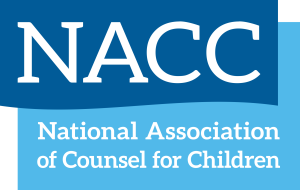
NACC is pleased to announce our new and expanded Infants & Toddlers series. This comprehensive four-session series is tailored for attorneys for the agency, children, or parents, as well as judges and social workers in infant and toddler cases.
Dive deep into the nuances of providing high-quality legal representation in cases involving our youngest and most vulnerable clients. From compassionate advocacy and understanding the unique harms faced by infants and toddlers to navigating the removal decision and fostering collaboration for families, each session is designed to equip you with the specialized knowledge and skills needed to effectively advocate for these young individuals.
Don’t miss this opportunity to enhance your practice and make a meaningful impact in the lives of infants and toddlers. Register now to secure your spot in this essential series. All registrants also receive electronic access to last year’s recordings and materials from the High-Quality Legal Representation for Infants and Toddlers Training Series.
Session One: Compassionate Advocacy in Infant & Toddler Cases
- The Importance of Cultural Humility for Attorneys in Infant & Toddler Cases
- Trauma-Informed Representation
- Engaging w/ infants and toddlers
- Personal/Peer Care and Compassion for Attorneys in Infant & Toddler Cases
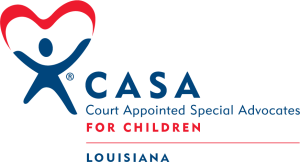
Promoting Positive Change in Communities by Confronting Poverty
Louisiana CASA is excited to host our third webinar series. This series is brought to you in partnership with the Louisiana Children’s Trust Fund so we are required to ask participants certain demographic questions during registration. Once you register, an email will be sent to you that includes the link to join the webinar. We hope to see you there!
Disproportionality and Poverty
Poverty intersects with other social determinants, such as racism and classism, creating structural vulnerabilities and evidence indicates impoverished children are disproportionately affected by maltreatment. Poverty, especially when combined with factors like parental depression, substance use, and social isolation, significantly increases the risk of child maltreatment. The presentation will discuss how these low-resource conditions contribute to disparities and why children from lower socioeconomic backgrounds, race, and ethnicity face closer scrutiny and affect child maltreatment reports.
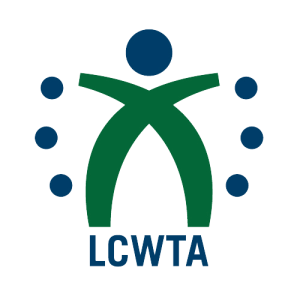
Parenting is challenging, particularly when you are parenting a child from a hard place. TBRI® Connecting Principles will provide and in-depth look at connection and attachment and will give you strategies and skills for helping children and families heal. This multi-disciplinary training is designed to give caregivers, volunteers, and professionals who serve children and families the knowledge and practical skills they need to bring hope and healing.
This multi-disciplinary training is designed to give caregivers, volunteers, and professionals who serve children and families the knowledge and practical skills they need to bring hope and healing. This live, online training has 4 video-conferencing modules, giving participants the opportunity learn in an interactive environment.
Please Note: Participants must attend TBRI Introduction and Overview prior to attending this training.
Module 1: Introduction and Insight
Learning objectives:
1. Gain knowledge & insight about infant attachment that will build a foundation for awareness of your own attachment history as well as how to build secure connections with children.
Module 2: Attachment (when things go wrong) and Mindfulness Strategies ( May 15)
Learning objectives:
1. Gain knowledge regarding the effects of insecure attachment on the ability to regulate behavior.
2. Gain insight on how our own attachment styles and histories influence the relationships we have with others.
Module 3: Engagement Strategies
Learning objective:
1. Gain strategies and techniques that make it easier to relate to children in the ways they communicate best – non verbally and through playful interaction.
Module 4: Building Trust by Giving Voice
Learning objectives:
1. Gain understanding and compassion regarding the fact that children from hard places often crave control of their environments, which is a product of having no control over their past.
2. Gain strategies that teach children that their words have power and safe adults will listen to their needs.

NACC is pleased to announce our new and expanded Infants & Toddlers series. This comprehensive four-session series is tailored for attorneys for the agency, children, or parents, as well as judges and social workers in infant and toddler cases.
Dive deep into the nuances of providing high-quality legal representation in cases involving our youngest and most vulnerable clients. From compassionate advocacy and understanding the unique harms faced by infants and toddlers to navigating the removal decision and fostering collaboration for families, each session is designed to equip you with the specialized knowledge and skills needed to effectively advocate for these young individuals.
Don’t miss this opportunity to enhance your practice and make a meaningful impact in the lives of infants and toddlers. Register now to secure your spot in this essential series. All registrants also receive electronic access to last year’s recordings and materials from the High-Quality Legal Representation for Infants and Toddlers Training Series.
Session Two: Understanding the Harm in Infant and Toddler Cases
- Developmental Considerations in Cases of Suspected Maltreatment: Physical Injury, Sexual Abuse, Medical
- Poverty vs Neglect in Cases Involving Infants and Toddlers
- Intimate Partner Violence in Homes with Infants amd Toddlers
- Infant and Toddler Substance Exposure Cases
- Expert Witnesses in Infant and Toddler Cases

Parenting is challenging, particularly when you are parenting a child from a hard place. TBRI® Connecting Principles will provide and in-depth look at connection and attachment and will give you strategies and skills for helping children and families heal. This multi-disciplinary training is designed to give caregivers, volunteers, and professionals who serve children and families the knowledge and practical skills they need to bring hope and healing.
This multi-disciplinary training is designed to give caregivers, volunteers, and professionals who serve children and families the knowledge and practical skills they need to bring hope and healing. This live, online training has 4 video-conferencing modules, giving participants the opportunity learn in an interactive environment.
Please Note: Participants must attend TBRI Introduction and Overview prior to attending this training.
Module 1: Introduction and Insight
Learning objectives:
1. Gain knowledge & insight about infant attachment that will build a foundation for awareness of your own attachment history as well as how to build secure connections with children.
Module 2: Attachment (when things go wrong) and Mindfulness Strategies ( May 15)
Learning objectives:
1. Gain knowledge regarding the effects of insecure attachment on the ability to regulate behavior.
2. Gain insight on how our own attachment styles and histories influence the relationships we have with others.
Module 3: Engagement Strategies
Learning objective:
1. Gain strategies and techniques that make it easier to relate to children in the ways they communicate best – non verbally and through playful interaction.
Module 4: Building Trust by Giving Voice
Learning objectives:
1. Gain understanding and compassion regarding the fact that children from hard places often crave control of their environments, which is a product of having no control over their past.
2. Gain strategies that teach children that their words have power and safe adults will listen to their needs.
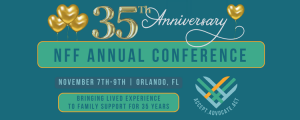
The National Federation of Families is the nationwide advocacy organization with families as its sole focus, playing an important role in helping parents, caregivers, and families of children—of any age—whose lives are impacted by mental health and substance use challenges during their lifetime. This important work is supported largely by generous sponsors, supporters, and donors like you who contribute to our cause. Additionally, the National Federation of Families (NFF) provides the only National Certification for Family Peer Specialists™ (CFPS).
For the last 35 years, the NFF has brought families, parents, community leaders, providers, partners, and legislators together at our Annual Conference where we work to leverage our lived experience and learned solutions for the support and advancement of families impacted by mental health and/or substance use challenges during the lifetime of their children.
To accomplish this, we welcome a diverse array of voices of those with lived experience for attendees to learn from and alongside. We look forward to celebrating our 35th anniversary in Orlando, FL with you this year!

Join us for a free webinar to learn about effective approaches for implementing your child welfare system’s diligent recruitment plan. Hear specific tips and strategies for creating an implementation plan that will help guide your work, including ideas for prioritizing and sequencing your efforts and ways to connect your diligent recruitment efforts to other relevant priorities and initiatives in your child welfare system.
Learning objectives
- Actionable approaches for implementing your diligent recruitment plan
- The value of connecting your diligent recruitment plan implementation to other priorities in your system
- How other child welfare systems approach implementing diligent recruitment strategies and activities
- The value of tracking progress and measuring impact as part of your implementation efforts
- Ways to engage people with lived experience in diligent recruitment plan implementation
Presenters
Alicia Groh
Consultant
National Center for Diligent Recruitment
Margarita Assink
National child welfare advisor
National Center for Diligent Recruitment
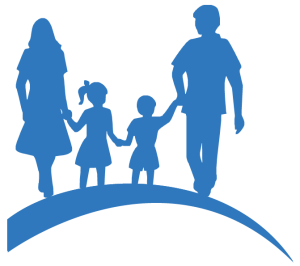
This webinar is tailored for systems that serve American Indian and Alaskan Native (AI/AN) families affected by substance use. It provides specific strategies and tools to equip the workforce to deliver culturally appropriate services for AI/AN families. Attendees will
- Receive information on the history of policies and practices that separated AI/AN families
- Learn about legislation, such as the Indian Child Welfare Act (ICWA), developed in response to the policies and practices
- Gain access to newly developed tools focused on improving outcomes for AI/AN families affected by substance use
Join the webinar to receive the newly published NCSACW resource The Indian Child Welfare Act (ICWA) Active Efforts Support Toolkit (IAST)
Paperwork Reduction Act Statement: https://www.cffutures.org/pra-training-registration/







